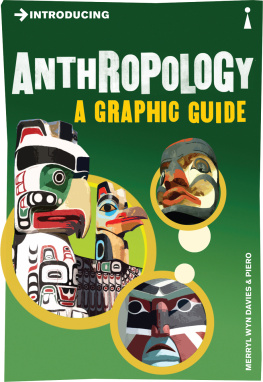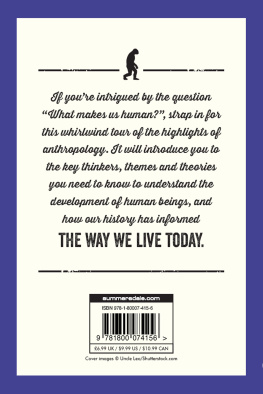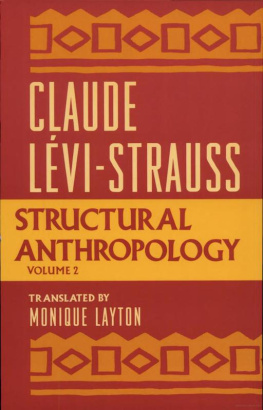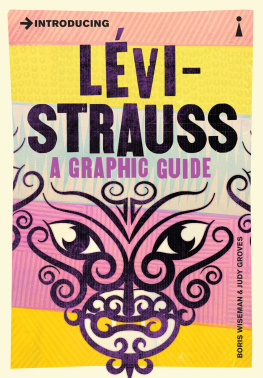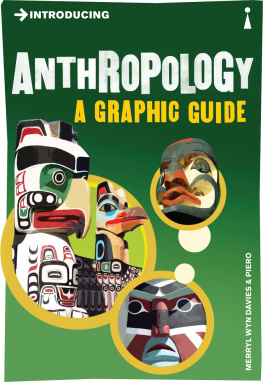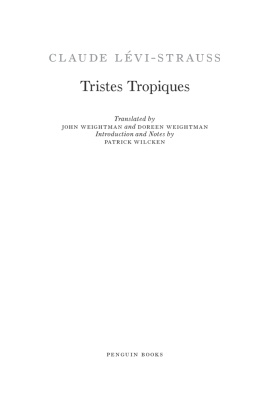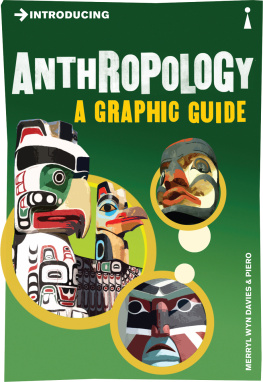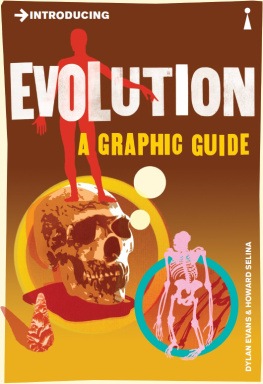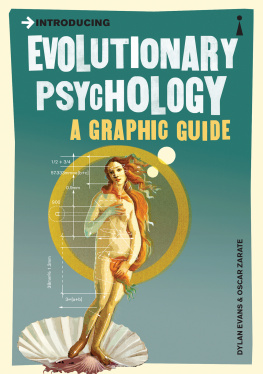Merryl Wyn Davies - Introducing Anthropology: A Graphic Guide
Here you can read online Merryl Wyn Davies - Introducing Anthropology: A Graphic Guide full text of the book (entire story) in english for free. Download pdf and epub, get meaning, cover and reviews about this ebook. year: 2010, publisher: Icon Books, genre: Politics. Description of the work, (preface) as well as reviews are available. Best literature library LitArk.com created for fans of good reading and offers a wide selection of genres:
Romance novel
Science fiction
Adventure
Detective
Science
History
Home and family
Prose
Art
Politics
Computer
Non-fiction
Religion
Business
Children
Humor
Choose a favorite category and find really read worthwhile books. Enjoy immersion in the world of imagination, feel the emotions of the characters or learn something new for yourself, make an fascinating discovery.
- Book:Introducing Anthropology: A Graphic Guide
- Author:
- Publisher:Icon Books
- Genre:
- Year:2010
- Rating:5 / 5
- Favourites:Add to favourites
- Your mark:
Introducing Anthropology: A Graphic Guide: summary, description and annotation
We offer to read an annotation, description, summary or preface (depends on what the author of the book "Introducing Anthropology: A Graphic Guide" wrote himself). If you haven't found the necessary information about the book — write in the comments, we will try to find it.
Introducing Anthropology traces the evolution of anthropology from ancient Greece to contemporary times. Anthropologys key concepts and methods are explained, and we meet some of its most famous stars, including Franz Boas, Bronislaw Malinowski, E.E. Evans-Pritchard, Margaret Mead, and Claude Levi-Strauss.
Merryl Wyn Davies: author's other books
Who wrote Introducing Anthropology: A Graphic Guide? Find out the surname, the name of the author of the book and a list of all author's works by series.

